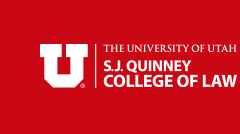Utah OnLaw: The Utah Law Review Online Supplement
Article Title
Abstract
The current institution of oral argument in the national and Utah appellate court systems must be revitalized to save a legal practice that has positively contributed to the development of the law. The purposes served by oral argument—client advocacy and equitable appellate review—cannot be lost merely because the procedure is outdated. By implementing a tentative-opinion program, oral argument will be more focused and meaningful. By reformatting the procedural logistics of oral argument, the parties will be uninhibited in their approach to the conversation. Finally, by employing judicial debiasing strategies, the judges will be aware of their confirmation bias propensities and, as a result, will arrive at better decisions. The Utah appellate process will be reinvigorated and will avoid the “sorry day” when oral argument becomes meaningless.
Recommended Citation
Collings, Clark
(2013)
"Oral Argument Reform in Utah's Appellate Courts: Seeking to Revitalize Oral Argument Through Procedural Modification,"
Utah OnLaw: The Utah Law Review Online Supplement: Vol. 2013
, Article 18.
Available at:
https://dc.law.utah.edu/onlaw/vol2013/iss1/18



